Archive: 2024 | 2023 | 2022 | 2021 | 2020 | 2019 | 2018 | 2017

Phobien entstehen durch Lernprozesse, man kann sie also auch wieder verlernen. Mit verschiedenen Interventionen helfen Bochumer Psychologinnen und Psychologen Betroffenen, ihre Ängste zu besiegen.
Wer Angst vor Spinnen hat, ist in guter Gesellschaft: Spinnenangst ist eine der verbreitetsten Phobien. Das nachgewiesenermaßen erfolgreichste Mittel dagegen ist die Expositionstherapie: Man setzt sich dem angstauslösenden Reiz aus und erlebt gewissermaßen eine Enttäuschung.

Ministerpräsident Hendrik Wüst und NRW-Wissenschaftsministerin Ina Brandes eröffnen das Research Center One Health Ruhr.
Die Eröffnung des Research Centers One Health Ruhr durch Ministerpräsident Hendrik Wüst und NRW-Wissenschaftsministerin Ina Brandes am 4. November 2024 definiert neue Maßstäbe für eine interdisziplinäre und international wettbewerbsfähige Spitzenforschung in Gesundheit, Umwelt und Gesellschaft.

When it comes to estimating one’s own mobility, the brain turns out to be notoriously pessimistic.
People can bend their wrist further than they think. This is what researchers from Ruhr University Bochum, Germany, and the Université catholique de Louvain, Belgium, have discovered. They asked 84 people to estimate how far they could move their hand in different directions. The participants systematically underestimated the mobility of their wrist.

An der Ruhr-Universität Bochum hat die Psychotherapeutische Hochschulambulanz der Abteilung für Medizinische Psychologie und Medizinische Soziologie eröffnet.
Nach mehrjähriger Vorbereitung hat die Psychotherapeutische Hochschulambulanz der Abteilung für Medizinische Psychologie und Medizinische Soziologie der Medizinischen Fakultät der RUB ihre Arbeit aufgenommen. Unter der klinischen Leitung der Psychotherapeutinnen Lisa Stöckner und Ina Külpmann bietet die Ambulanz ab sofort psychotherapeutische Unterstützung an.
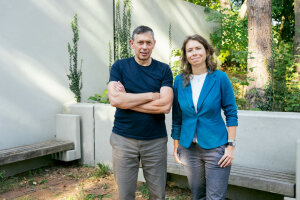
Signals in our brain are not always processed in the same way: Certain receptors modulate these mechanisms, influencing our mood, perception, and behavior in various ways. One of these is the 5-HT2A receptor, which has a recently discovered unique characteristic: It dampens incoming visual information, giving our brain more space for internal processes and interpretations.
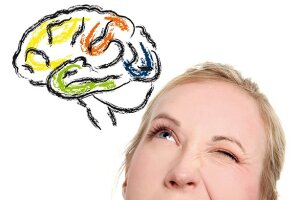
Ein Nachmittag im Zeichen der Bochumer Neurowissenschaften mit Vorträgen, Informationen und Mitmachaktionen.
Was passiert bei Amyotropher Lateralsklerose (ALS)? Wie beeinflussen körperliche Alltagsaktivitäten unsere Stimmung? Welche möglichen Entstehungswege für Grünen Star gibt es? Und wie können Tiere therapeutisches Arbeiten erleichtern? Einblicke in eine faszinierende Welt - die Neurowissenschaftler*innen der RUB laden zum BRAIN DAY ins Veranstaltungszentrum ein.
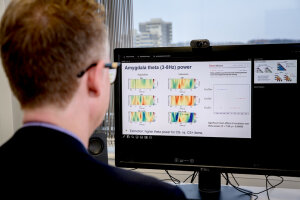
Letting go of learned fears is difficult. New research findings reveal that the environment in which we learn the fear could also play a crucial role in unlearning it.
At home, Nikolai Axmacher learned that it is bad manners to slurp when eating soup. The professor now often travels to China, where not slurping soup is considered impolite. This is just one example of the importance of context, which Axmacher is researching in the Extinction Learning Collaborative Research Center.
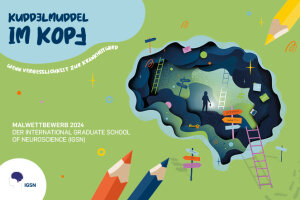
Das Gehirn ist wie eine Schatzkiste. Viele wertvolle Erinnerungen liegen darin - und jeden Tag werden es mehr. Doch bei manchen Menschen wird der Erinnerungsschatz nicht größer, sondern immer kleiner. Schuld daran ist eine Krankheit, die Demenz genannt wird.
Wie sieht es aus und welche Situationen entstehen, wenn Vergesslichkeit zur Krankheit wird? Die International Graduate School of Neuroscience (IGSN) ruft Bochumer Schüler*innen der Klassen 3 und 4 zum Malwettbewerb auf.
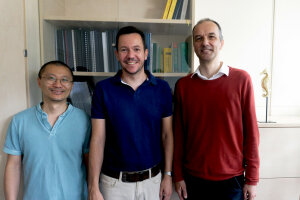
The first day of school: entering the classroom for the first time, the excited feeling in your stomach and the joy of having a school bag – these are all typical examples of memories from our episodic memory.
In a study at the Institut für Neuroinformatik at the Faculty of Computer Science of Ruhr University Bochum, Germany, a team led by Professor Laurenz Wiskott has developed a new computer model of episodic memory. The work was published on June 20, 2024 in the journal PLOS ONE.
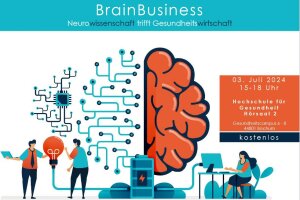
Hochaktuelle Vorträge flankiert von zukunftsgerichteten Diskussionen – die Veranstaltungsreihe BrainBusiness hat bereits zum vierten Mal interessierte Vertreter*innen aus Wissenschaft, Versorgung und Wirtschaft zusammengebracht, um den interdisziplinären Austausch im Bereich der Neurowissenschaften im Ruhrgebiet zu fördern.
Rund 60 Gäste waren am 3. Juli in die Hochschule für Gesundheit in Bochum gekommen. Im Fokus standen in 2024 die Themen „Mentale Gesundheit“ und „Neurodegenerative Erkrankungen“.
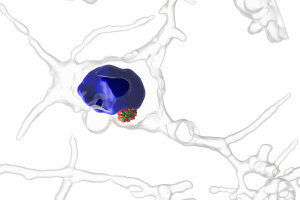
Cutting-edge microscopy techniques make it possible to resolve the spatiotemporal organization of biomolecules at the nanoscale and allow the visualization of previously inaccessible macromolecular structures. Recent developments in light and electron microscopy have significantly changed research in cell biology, structural biology and biophysics.
The GBM conference series "GBM Compact" is now dedicating a two-day conference to technological progress in microscopy: "Focus on Imaging" will be held on September 26 and 27 at the University Hospital Frankfurt.

Social neuroscience and the question of the neuronal basis of prejudice were the focus of the symposium "THE NEUROSCIENCE OF UNCONSCIOUS BIAS" on Monday, May 13, 2024, at the International School of Neuroscience (IGSN).
Prof. Dr. David Amodio from the Department of Psychology at the University of Amsterdam opened the symposium with a lecture on the memory systems that support implicit bias.
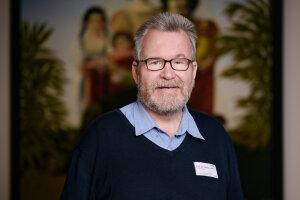
So viele Freunde auf den sozialen Kanälen, so viele Nachbarn im eigenen Wohnviertel und so viele gemeinschaftliche Freizeitangebote wie nie zuvor – und trotzdem einsam?
Betroffen sind Junge wie Alte, Frauen wie Männer, Kinder wie Jugendliche. „Gemeinsam aus der Einsamkeit“ lautet die bundesweite Aktionswoche vom 17. bis 23. Juni, auf die auch das LWL-Universitätsklinikum Bochum mit seiner Spezialsprechstunde Einsamkeit aufmerksam machen möchte.
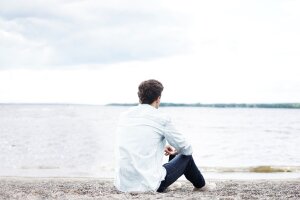
Loneliness is a widespread phenomenon that can affect both mental and physical health.
Considering the growing recognition of the issue, a research team led by Prof. Dr. Dirk Scheele, RUB, and Dr. Jana Lieberz, University Hospital Bonn, conducted a study on the beneficial effects of oxytocin in the treatment of loneliness. The researchers published their findings in the journal “Psychotherapy and Psychosomatics” on May 16, 2024.
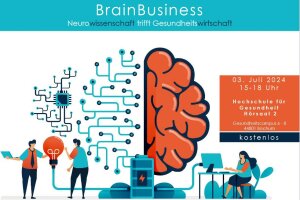
Mental health and neurodegenerative diseases will be the focus of BrainBusiness on Wednesday, July 3. Participation is free for all interested visitors.
The series of events established in 2021 acts as an exchange format between science and business. The aim is to enable participants to learn more about the findings from fundamental research, to jointly develop application scenarios and to develop utilization in an economic context. Come and see us!
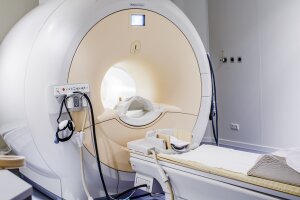
Neuroscience team from Bochum and Utrecht investigates the use of quantitative MRI methods in genetic muscle diseases.
The scientists succeeded in visualizing changes in the muscles within a year and determining the exact extent of the damage.The results of the study were published on May 25 in the journal “NMR in Biomedicine”.
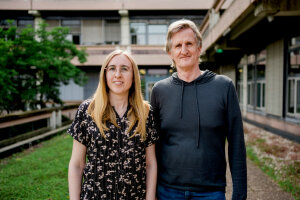
A study from Bochum describes a mammal-specific domain of the prion protein and offers new approaches for research into neurodegenerative diseases.
At first, they cause memory deficits and difficulties in walking, finally they inhibit elementary motor skills and destroy basic brain functions: Prion diseases are progressive and invariably fatal neurodegenerative diseases. They are caused by misfolded prion proteins.
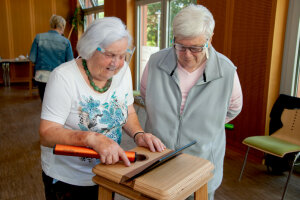
Solving a quiz as a group while moving around the room at the same time – this combination is the basis of a new tool designed to prevent dementia.
Researchers developed and evaluated it in the “go4cognition” project with industry partners and brought it to market maturity. Vanessa Lissek and Professor Boris Suchan from Ruhr University Bochum, Germany, and Stefan Orth from the company Ontaris describe how effective the training with the system is in the Journal of Alzheimer Disease. The article was published online on April 30, 2024.
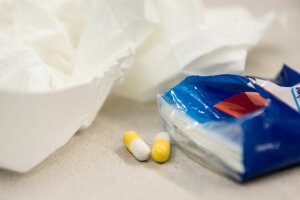
Researchers at the University Alliance Ruhr have discovered new insights into how acute illness affects empathy. Their study confirms complex relationships between physical well-being and empathy.
The researchers investigated "sickness behavior", a process in which the body reorganizes its biological priorities in the context of an acute infection.
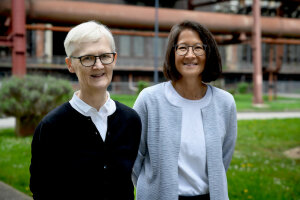
A new study shows that the cerebellum is involved in processing emotions. This is important to know when caring for people with ataxia.
Professor Melanie Mark from Ruhr-University Bochum and Professor Dagmar Timmann from the University of Duisburg-Essen are two of the first researchers to provide experimental evidence that the cerebellum contributes towards both the learning and the extinction of conditioned fear responses. They report on this in the journal eNeuro on January 4, 2024.

A hug can have a beneficial effect. Even when it comes from a robot.
Touch can do a lot of good – so far, so good. But to what extent do humans benefit from it? A research team from Bochum, Duisburg-Essen and Amsterdam analyzed over 130 international studies with around 10,000 participants to answer this questions. The researchers proved that what touch really does is alleviate pain, depression and anxiety.
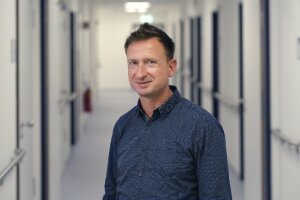
Forschungsgruppe untersucht Online-Spielsucht und Internetpornografie
Verhaltenssüchte, wie sie bei ungesunder und exzessiver Nutzung von Computerspielen, Shopping, Internetpornografie und Sozialen Medien auftreten, nehmen seit vielen Jahren zu. Zu Auswirkungen, Ursachen und Verhalten besteht nach wie vor noch viel Forschungsbedarf. Die Deutsche Forschungsgemeinschaft (DFG) hat die Förderung der transregionalen Forschungsgruppe* zu Verhaltenssüchten verlängert und mit weiteren fünf Millionen Euro ausgestattet.
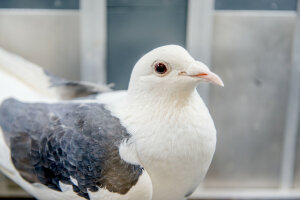
Since the late 19th century, it has been a common belief among researchers that high intelligence requires the high computing capacity of large brains.
Avian brains, by contrast, are very small and lack any structure resembling a cortex. Nevertheless, scientists showed that parrots and corvids are capable of planning for the future, forging social strategies, recognizing themselves in the mirror and building tools.
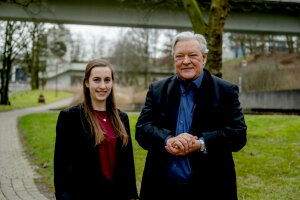
Researchers from Bochum and Dortmund have created an artificial cell environment that could promote the regeneration of nerves.
Usually, injuries to the brain or spinal cord don’t heal easily due to the formation of fluid-filled cavities and scars that prevent tissue regeneration. One starting point for medical research is therefore to fill the cavities with a substance that offers neural stem cells optimal conditions for proliferation and differentiation.

Social isolation and loneliness are major societal problems.
Researchers from the Central Institute of Mental Health (CIMH) in Mannheim, in collaboration with scientists from the Karlsruhe Institute of Technology (KIT), Ruhr University Bochum, Germany, and the University of Bern, have investigated the extent to which physical activity can mitigate the negative effects of being alone on affective well-being.
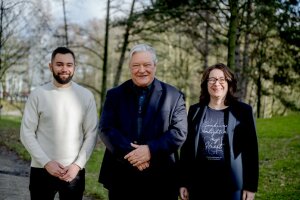
The environment of retinal nerve cells plays a crucial role in the processing of visual signals.
A research team from Ruhr University Bochum, together with other research groups, was able to show that the combined loss of four proteins leads to a severe impairment of the function of the retina, reduced visual movement processing and significant synaptic changes.